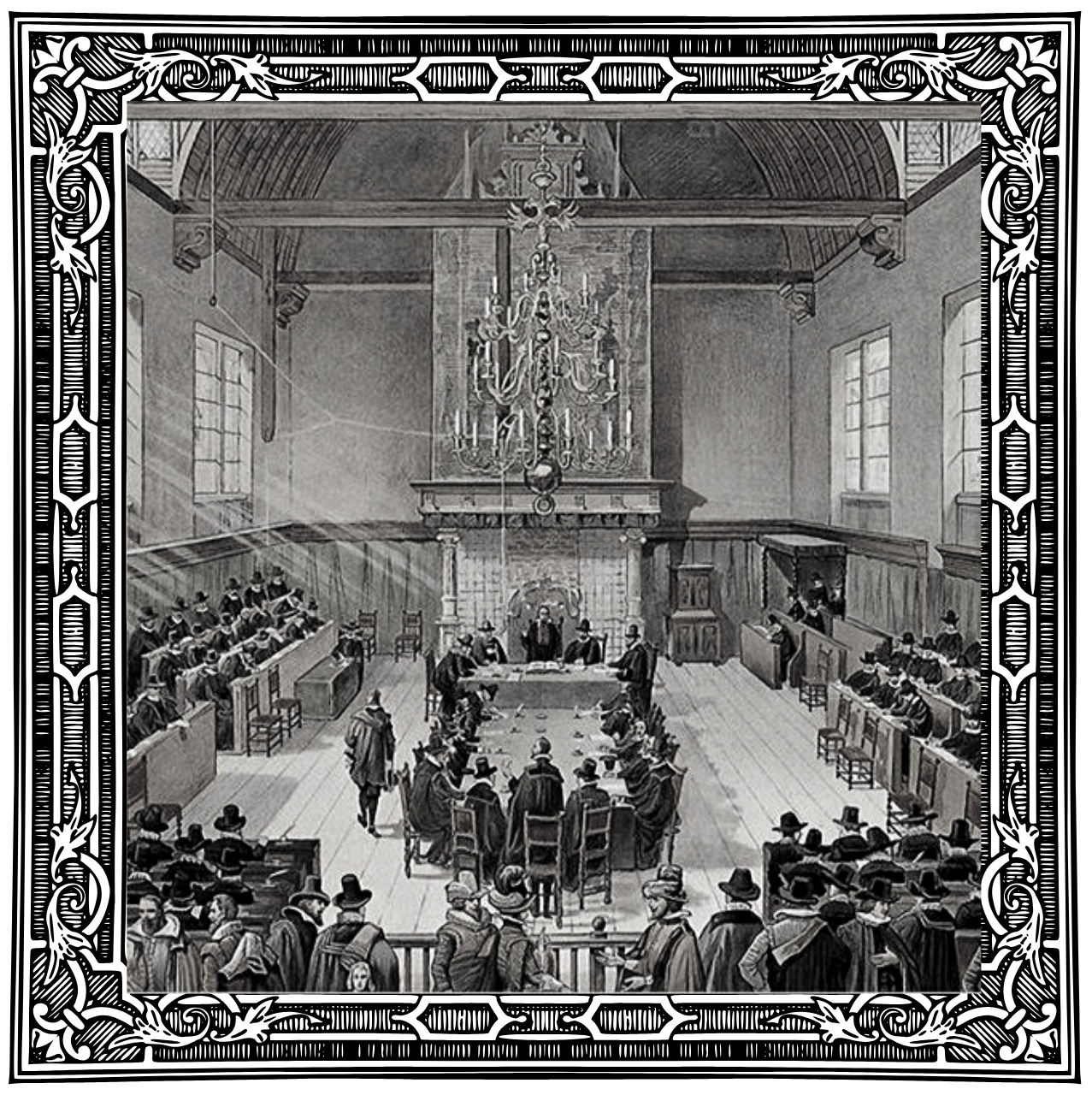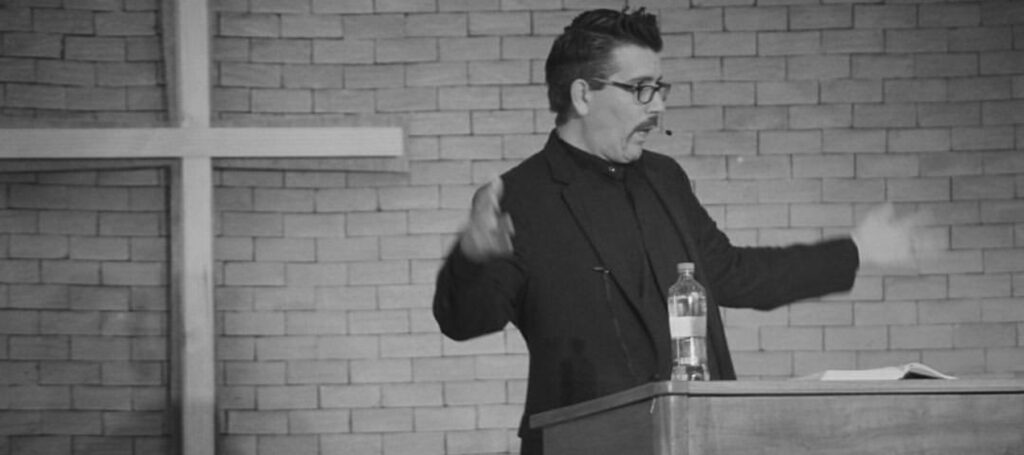Unless seminaries have changed, you won’t deal with ministering after miscarriages.[1] Or what if there’s a tragic accident? How do you minister to a family grieving the loss of child by SIDS? It’s the most challenging pastoral issue I learned to face in my first ten years as a gospel minister. Seminary didn’t prepare me to deal with it. Therefore, you need to be. You will deal with this terrible providence as a pastor. Your theology must be exercised as I wrote elsewhere.
Miscarriage tears my heart out and leaves me speechless. Seeing unbearable grief on the faces of your beloved brothers and sisters does this. My grief is nothing compared to that of the priceless women and men who’ve actually experienced it. I know if you’re reading this and you’ve gone through miscarriage, those feelings may be coming back. I grieve with you. I’ve also learned in pastoral ministry that those who can’t have children also feel traumatized. I’ve ministered to you, too. It’s one thing to confess the comfort of Canons of Dort 1.17 (see below); ministering it after miscarriages is quite another.
What’s my counsel on ministering after miscarriages?
Be Prepared
Ministering after miscarriages means being prepared. Do you know miscarriages are prominent? It’s the most common type of pregnancy loss according to the American College of Obstetricians and Gynecologists (ACOG). Studies reveal that 10-25% of all clinically recognized pregnancies end in miscarriage. Sadly, it’s part of the frail, frustrating, and futile creation realm in this age (Rom. 8:18–22). Our old Reformation-era Form for Baptism calls this life “nothing but a continual death.”
Be prepared. Miscarriage causes a whole list of difficult questions. I often refer to 1 Peter 3:15 in my preaching about the Christian’s preparation to be a witness to Christ in the world. Every Christian is to be “prepared to make a defense to anyone who asks you for a reason for the hope that is in you.” This passage applies to pastors, too. When our own people suffer a miscarriage and are looking to us hope, give them an answer!
Theological questions
Theologian Dan Doriani summarizes some of his own theological questions:
In the quieter moments of the next two days, very different questions troubled me—intellectual questions contradicting my convictions about the unborn and my feelings about our child. I wondered, is heaven populated with the unborn? Are all the unborn there? If so, are the Soviets, who are said to perform three abortions for every live birth, filling heaven with their monstrous practice? Or are only the progeny of believers there? Even so there must be billions, since miscarriage is so common. How does that affect their eternity? Or perhaps (the Bible says so little about these matters)—perhaps the orthodox doctrine is wrong. Perhaps my child was not yet a person, not yet “my child.” It is hard to imagine the life of a former fetus in heaven.[2]
Practical questions
Some mothers and fathers may have these kinds of questions. Be prepared— even that some may not. For example, Doriani goes on to list some of the more practical kinds of questions you’ll face:
More painfully, I wondered, how did my son, so small, so undeveloped, die? Like a higher animal, feeling but without self-consciousness? Like a worm, all but insensitive? Like a man, carried off by angels, rejoicing? Our defense of the unborn, our speeches and sermons and “silent scream” videos force these questions. If abortion is murder, miscarriage is a death in the family. But it is a strange kind of death. Where is the funeral, the gathering of family? It is the death of someone whom no one knew, except perhaps the mother. There were other questions. Why was I in more pain than my wife? Why did one daughter act as if nothing had happened? And most troubling, why did I feel polluted, almost guilty? The next night I went jogging. Alone in the darkness with God, answers came. I began to understand my wife’s subdued response. She felt something was amiss, and had never attached herself to one she would never hold.[3]
Be Involved
Ministering after miscarriages means treating it like another death of a family member in the congregation. As Doriani writes, “If abortion is murder, miscarriage is a death in the family.”[4] Being involved in the Reformed tradition means going to visit like you would for any death. Be there means listening to grieve and questions. It also means not having pat answers ready. Listen; sympathize; grieve. When you go and get involved, read the Word. Comfort like you would in any other visit. Of course, involvement as a minister means praying together.
Then you leave. Now what? Stay involved. Offer to contact the deacons to provide mercy meals. Ask if you can let the congregation know so they can pray. Is this announcement via email only? In the bulletin? In public prayer? However, involve yourself by exhorting the rest of the church family to be sensitive.
Be a Minister
Ministering after miscarriages means being a minister. What do you do?
- Read Canons of Dort 1.17:
Since we must make judgments about God’s will from his Word, which testifies that the children of believers are holy, not by nature but by virtue of the gracious covenant in which they together with their parents are included, godly parents ought not to doubt the election and salvation of their children whom God calls out of this life in infancy.
 I’ve written in great detail on the history and meaning of this article. I’ve also preached on it. Here I’ll make just a few comments. Canon 1.17 is the pastoral basis of the confessionally Reformed minister. Learn this article; use it.
I’ve written in great detail on the history and meaning of this article. I’ve also preached on it. Here I’ll make just a few comments. Canon 1.17 is the pastoral basis of the confessionally Reformed minister. Learn this article; use it.
As we know within Dutch Reformedom, this is a debated issue. The debate is whether covenant children who die early in life are in heaven or not. The Westminster Confession offers a theologically correct assessment no Reformed believer will deny:
Elect infants, dying in infancy, are regenerated and saved by Christ through the Spirit, who worketh when, and where, and how he pleaseth. (10.3)
Yet Dort reminds us we have to deal with things “below.” We don’t know the eternal decree of God. Therefore, we must judge things from within the covenant and visible church. The delegates at Dort sought to answer a pastoral question pastorally.
The issue for those in churches that confess the Canons is whether they describe certainty about the children or only the attitude of the parents. An example of the former is Herman Bavinck[5]; of the latter is Herman Hoeksema.[6] Without getting into all the historical and theological weeds here, I’ll let you consult the resources below.
- Read the Word.
I goes without saying that we need to base our pastoral comfort upon the Word. Read Psalm 139. Here’s David’s confidence of being in the Lord’s presence even in the womb. Read of David’s agony and response to his son’s death in 2 Samuel 12.
The Canons of Dort article above comes from such passage. Children of believers are members of the covenant of grace. Thus we read the Word to our broken members from within that rich and comforting status as the people of God. This means offering strong encouragement. They don’t need to doubt where their lost child is. The lost child they may have never held in their arms is in the arms of Jesus!
- Pray.
Above all, draw near to the throne of grace together. The Psalms and the wonderful prayers of our tradition help. For example, we in the URCNA have three Prayers for the Sick and the Spiritually Distressed. We also have a very old series of meditations entitled Consolation of the Sick. Several of these have appropriate meditations for such an occasion.
In sum, ministering after miscarriages is inevitable. It’s also indispensable. Prepare now. Be involved when it comes. Most of all, be a minister of the gospel’s treasure as a jar of clay when life is broken (2 Cor. 4:7).
Some Resources on Miscarriage
Dan Doriani, “Miscarriage of an Early-Term Infant,” in The Hardest Sermons You’ll Ever Have to Preach, ed. Bryan Chapell (Grand Rapids: Zondervan, 2011).
Henk Kleyn, “Malachi’s Short Story”
Glenda Mathes, Little One Lost: Living with Early Infant Loss (Grandville: Reformed Fellowship, 2012).
Reggie Weems, Help! My Baby Has Died (Day One, 2010).
David Wiersbe, Gone but Not Lost: Grieving the Death of a Child (Baker, 1992)
Some Resources on Understanding Canons of Dort 1.17
Herman Bavinck, Reformed Dogmatics, Volume 4: Holy Spirit, Church, and New Creation, ed. John Bolt, trans. John Vriend (Grand Rapids: Baker Academic, 2008), 724–727.
–––––. Saved by Grace: The Holy Spirit’s Work in Calling and Regeneration, trans. Nelson D. Kloosterman, ed. J. Mark Beach (Grand Rapids: Reformation Heritage Books, 2008), 69.
John Calvin, “Letter CCCLXIV–To a Gentleman of Provence,” in Selected Works of John Calvin, Volume 6 (Grand Rapids: Baker, 1983), 71–73.
Lee Gatiss, From Life’s First Cry: John Owen on infant baptism and infant salvation, St. Antholin’s Lectureship Charity Lecture 2008 (London: Latimer Trust, 2008)
W. Robert Godfrey, “Election and Covenant: The Synod of Dort and Children Dying in Infancy” (unpublished essay).
N. H. Gootjes, “Can Parents Be Sure?” Clarion 44:20 (October 6, 1995) and Clarion 44:21 (October 20, 1995).
John Owen, “Letter 83: To Lady Elizabeth Hartopp,” in The Correspondence of John Owen (1616–1683): With an Account of His Life and Work, ed. Peter Toon (Cambridge: James Clarke & Co. Ltd., 1970), 157–158.
Cornelis P. Venema, “The Election and Salvation of the Children of Believers Who Die in Infancy: A Study of Article I/17 of the Canons of Dort.” Mid-America Journal of Theology 17 (2006): 57–100.
[1] This lecture was first given to the students of the United Reformed Churches in North America at Westminster Seminary California on February 8, 2011.
[2] Doriani, “Miscarriage.”
[3] Doriani, “Miscarriage.”
[4] Doriani, “Miscarriage.”
[5] Bavinck, Reformed Dogmatics, 4:724–727; Saved by Grace, 69.
[6] Herman Hoeksema, Believers and their Seed, 149–158.







